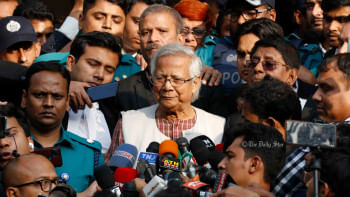Venezuela's invasion of Guyana: Maduro’s Hail Mary

This month, the world witnessed the escalation of a historic territorial dispute, as old as the borders it contests. The heart of the matter is the Essequibo region, a vast, resource-laden, mineral-rich area under Guyana's control since 1899, comprising two-thirds of the nation's territory and currently home to 125,000 citizens. Venezuela's long standing claim intensified with a successful referendum in an effort to legitimise Venezuelan President Maduro's claim over the area despite questions of turnout and the exclusion of the Essequibo populace. Subsequently, both sides and Brazil have moved troops to their borders with the US hosting a "training exercise" alongside Guyana. As tensions escalate, Maduro has unveiled a new map, proudly declaring, "Long live the complete map of Venezuela." This statement raises the question: where did this new map actually originate from?
The dispute's genesis can be traced back to 1841, when Venezuela first laid claim to the land. The simmering tensions boiled over in 1895, involving Great Britain and the United States, leading to the 1899 Paris Arbitration Award. This decisive ruling placed the contested region under British Guiana's (now Guyana) control, a status that has been recognised by the international community to the present day.
In 1962, Venezuela reignited the dispute, rejecting the Paris Arbitration's findings. The United Nations stepped in with a diplomatic band-aid that lasted until 2015. It was in this year, amid the discovery of significant oil reserves in the region by Exxon, that the dispute shifted from a historical grievance to a geopolitical flashpoint. The failure of diplomatic efforts resulted in the dispute being referred to the International Court of Justice (ICJ) by Secretary General Antonio Guterres.
Fast forward to 2023, the dispute escalated dramatically. Guyana, controlling the region, granted drilling licences, while Venezuela, in a bold move, held a referendum asking its populace about annexing the region and rejecting ICJ's jurisdiction over the matter. The low turnout did little to deter the Maduro government from pressing its claim, including publishing maps and ordering the State oil company to begin operations. Maduro, a former bus driver and protege of Hugo Chavez, went as far as to give ExxonMobil a 90 day ultimatum to halt operations, with Guyana President Irfaan Ali calling it a " blatant disregard" of the ICJ's order to maintain status quo—the final ruling is expected to take years. Guyana, which has seen its economy soar at 37 percent in 2023, sees this as an existential threat.
In response, international players like Brazil, the UK, and the US supported Guyana. Brazil's military mobilisation and the US' military exercises with Guyana underscored the international community's stance. This aggression, reminiscent of Ukraine invasion, comes at a time of negotiations mediated by Norway to loosen sanctions and incentivise free and fair elections in 2024. So, why, after all this time, is Maduro taking such a big gamble now?
The obvious reason may seem to be the oil discovery in the disputed waters. With 11 billion barrels of oil at stake, Venezuela's insistence, despite possessing the largest oil reserve, hints at deeper motivations. This move can be interpreted as Maduro's strategic diversion, a bid to distract from domestic issues and rally nationalistic sentiment ahead of the 2024 elections, where he faces his most formidable opposition yet—Maria Corina Machado. Her party, without the involvement of the National Electoral Council, hosted primary elections where she came out as the overwhelming favourite. US involvement in the negotiations has been largely aimed at allowing her the opportunity to contest fairly in the 2024 elections where she is expected to be the overwhelming favourite. She claimed the Maduro Regime is "in its weakest position ever" and that the posturing was the embodiment of "desperation." This observation naturally makes one wonder whether such desperation drives the regime toward impulsive military action.
While there seems to be widespread disillusionment with his leadership, this should not automatically lead us to assume that he will be deterred from using force due to a lack of public enthusiasm for his ambitions. Saddam Hussein's invasion of Kuwait in 1990 despite his own unpopularity, serves as a historic reminder that leaders may resort to aggressive actions regardless of domestic approval. This comes at a time when the Senate Republicans have held up aid to Ukraine and seem unwilling to get into another conflict, surely a positive signal for Maduro's ambitions. Despite the unfolding dynamics, the US is likely to uphold the Monroe Doctrine and support Guyana. However, it is equally important to note that Venezuela is not without its own formidable allies.
Despite calling for peace, potential Russian involvement adds another dimension. Russia's interest in opening a new front against the US is undeniable and remains to be the strongest ally of Caracas; reportedly even deploying Wagner mercenaries to protect Maduro in 2019. Despite fears of a looming invasion, the two parties have agreed to refrain from military incursion in talks on December 14. Yet still, the likelihood of any significant agreement and consensus remains bleak.
The two sides have a fundamental disagreement, with President Irfaan Ali affirming "land boundary not up for discussion" while any concession will humiliate Maduro. Although the US is not an official party to the talks, their involvement is expected with ExxonMobil CEO even hinting as such. All parties have shown eagerness to avoid a military conflict despite Venezuela's bellicose rhetoric.
The challenges of an invasion are herculean due to the dense, underdeveloped Essequibo region making conventional warfare, like the use of tanks and mechanised infantry, challenging. Naval invasion remains impossible without support from Caribbean countries—who remain staunchly against the referendum. Venezuela has, however, built an airstrip on the border of Essequibo.
Dr Christopher Sabatini, Chaltham House Senior Fellow, believes the referendum reflects a publicity stunt gone wrong which may now degenerate into a serious conflict. This may very well be true but it is important to understand the genuine claim Venezuela may have, with even the opposition leader Machado saying Essequibo belongs to the people of Venezuela. She differs only in approach, relying on the ICJ for a resolution and not conflict. The children are said to have grown up drawing maps of Venezuela with dotted lines around Essequibo.
The Essequibo dispute is a stark reminder that the road to peace is often fraught with challenges. As Guyana and Venezuela navigate this intricate path, their decisions will not only shape their own futures but also echo across the region. In this uncertainty, one can only hope that wisdom and pragmatism will prevail.
Mahadev Ghosh is an independent researcher.
We welcome your contributions and analysis of global events. To submit articles to our new page, Geopolitical Insights, please send us an email at [email protected].
Follow The Daily Star Opinion on Facebook for the latest opinions, commentaries and analyses by experts and professionals. To contribute your article or letter to The Daily Star Opinion, see our guidelines for submission.

 For all latest news, follow The Daily Star's Google News channel.
For all latest news, follow The Daily Star's Google News channel. 









Comments